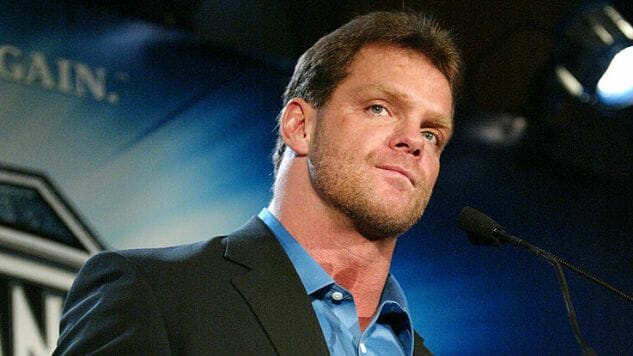Ten Years Later: The Chris Benoit Murder-Suicide

It’s hard to believe ten years have passed since the horrific events of the weekend of June 22 to June 24, 2007, during which Chris Benoit murdered his wife, Nancy, 43, and his seven-year-old son, Daniel, both by strangulation, then killed himself via hanging. The world of professional wrestling was sent into a tailspin, with friends, colleagues and fans of Benoit struggling to make sense of why he would do such a thing.
Many a book, tabloid magazine article and cable news expose tried to pin Benoit’s atrocities on a variety of factors, from ’roid rage, an inability to come to terms with son Daniel’s purported Fragile X syndrome (a growth abnormality that he apparently did not actually suffer from), and long term drug abuse and mental health issues, all of which probably had varying degrees of truth to them. Ultimately, Benoit had grown increasingly erratic during his final years in World Wrestling Entertainment, reeling from the death of his best friend Eddie Guerrero in late 2005, and perpetrating violence towards Nancy, who had filed for divorce and and apprehended violence orders in the past (which were later withdrawn), but we will likely never know what drove him to kill his family and himself.
WWE scrambled to distance themselves from Benoit’s misdeeds in the immediate aftermath and into today. After screwing up royally with a tribute to Benoit in place of regular Raw festivities on June 25, 2007, Vince McMahon infamously opened the following night’s episode of ECW by saying that Benoit’s name would never be mentioned again on WWE programming. And they’ve largely stayed true to that. “Chris Benoit” is not a searchable option on the WWE Network, and as recently as two years ago I remember watching a 1999 pay-per-view on the Network where Benoit’s main event match was omitted and his image blurred on the promo banners hanging next to the TitanTron.
-

-

-

-

-

-

-

-

-

-

-

-

-

-

-

-

-

-

-

-

-

-

-

-

-

-

-

-

-

-

-

-

-

-

-

-

-

-

-

-








































